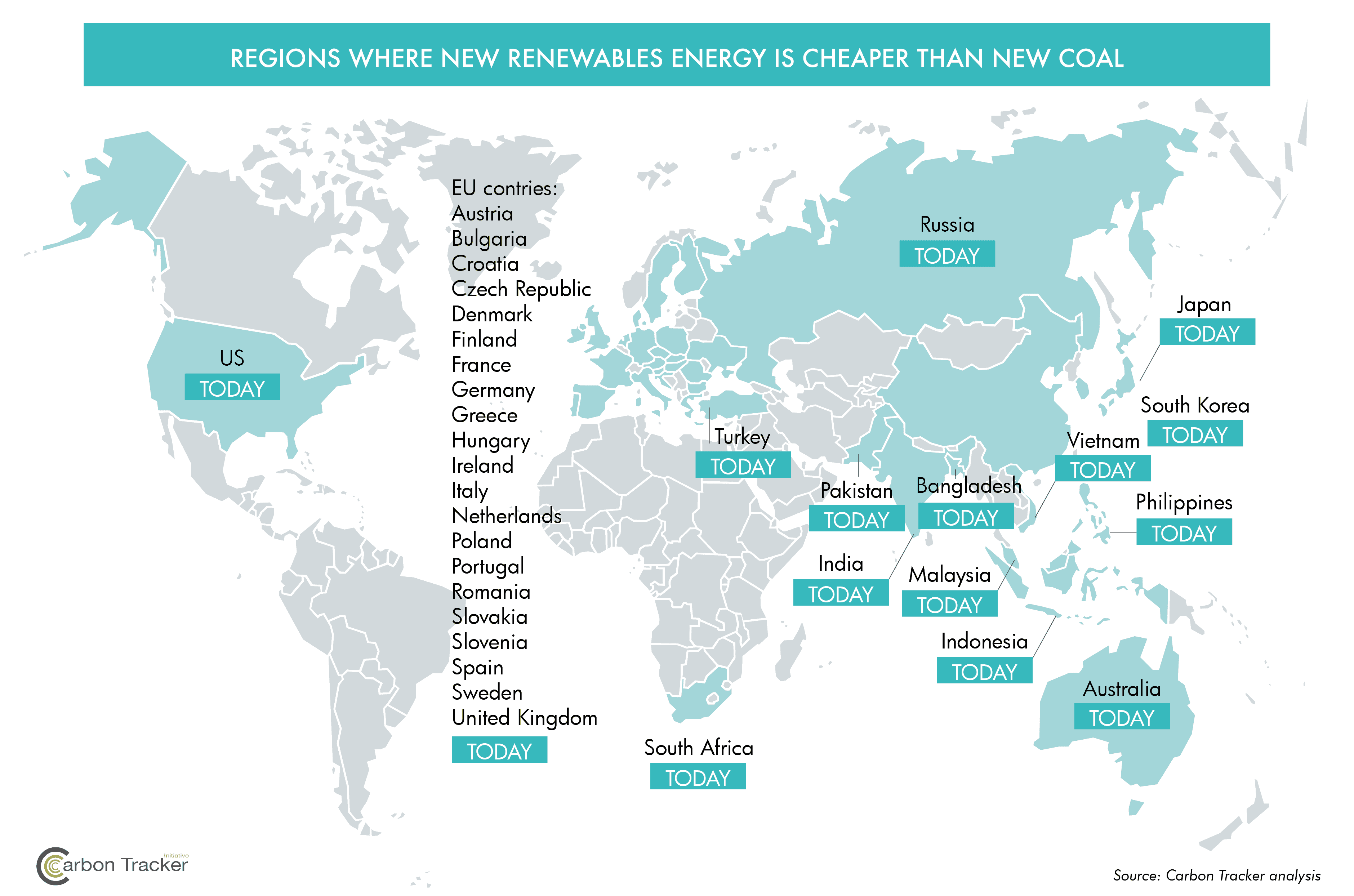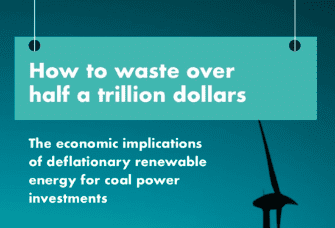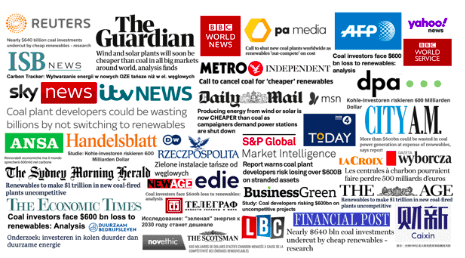Launch of Carbon Tracker Report on coal vs. cheap renewables

Greenhouse launched a new report on positive economic case for renewable energy vs. coal – and revealing over $600 billion assets at risk.
Here’s what happened:
The Carbon Tracker report found that nearly $640 billion of assets could be at risk because it is now cheaper to generate electricity from new renewable energy compared to coal.
It revealed that by 2030 at the latest, it will be cheaper to build new wind or solar capacity than continue operating coal in all markets.
“Renewables are out-competing coal around the world and proposed coal investments risk becoming stranded assets which could lock in high-cost coal power for decades,” said Matt Gray, co-author of the report.
In the EU for example, $16 billion of investment is at risk on 7.6 GW of new coal capacity planned, in countries such as Poland, Czech Republic, and Italy.
With wind and solar power so much cheaper, Carbon Tracker’s research suggests that coal plant closures are necessary. One per day until 2040, in order to meet the Paris Agreement target of 1.5C warming, and avoid stranded financial assets.

Global media coverage
The Greenhouse team, together with Carbon Tracker, liaised with media from all over the world, with the report featuring in more than 800 pieces of coverage, across more than 25 countries.
We secured coverage in a widespread of international and national news agencies, including Reuters, AFP, Press Association, DPA (Germany), and ANSA Italy.
It was reported on BBC global news website, and featured in news bulletins across BBC World Service, the Today Programme on BBC Radio 4, BBC World News TV, BBC World Business Report, and BBC Radio 5 Live.
We secured national media coverage in The Guardian, Daily Mail, The Independent, and national in Germany, Poland, France, China, India, Canada, and Australia, among others.

What did people say
BBC stated that “coal power developers risk wasting hundreds of billions of pounds as new renewable sources are now cheaper than new coal plants”.
Reuters demonstrated the impact on institutional investors, outlining how they are “increasingly withdrawing from fossil fuel companies due to the risk their assets will become stranded”.
Media coverage in The Guardian focused on Australia, claimed that the report “raises fresh doubt about the medium-term viability of Australia’s $26bn thermal coal export industry”.
Sky News highlighted how “in China, which is home to half the word’s coal generation, seven out of 10 plants already operating cost more to run than building new solar and wind farms.”
Press Association coverage in ITV News honed in on UK coal. It reported that: “four fifths (82%) of the UK’s remaining 12 gigawatt of operating coal power costs more than new renewables. In the UK, a carbon price floor, falling demand and subsidies for renewables have helped push most coal off the system ahead of a phase-out date which was recently moved forward to October 2024.”
Impact of the campaign
The message to governments and investors all over the world is crystal clear – as the cost of coal rises and renewable energy becomes more affordable, planned coal projects must be cancelled. And existing coal power must be phased out rapidly.
As co-author Sriya Sundaresan states: “Investors should be wary of relying on continued government support for coal when a phase-out will save their voters billions and make their economies more competitive.”
Such widespread global media coverage of this report ratchets up the pressure on governments and investors to acknowledge the shifting sands of energy generation economics.
Greenhouse PR works with organisations and leaders who are pioneering climate action. Whether it’s food, fashion, finance or farming, if you’ve got a great story and need our help to tell it, get in touch with the Greenhouse team on 0117 214 1250 or email info@greenhousepr.co.uk.


